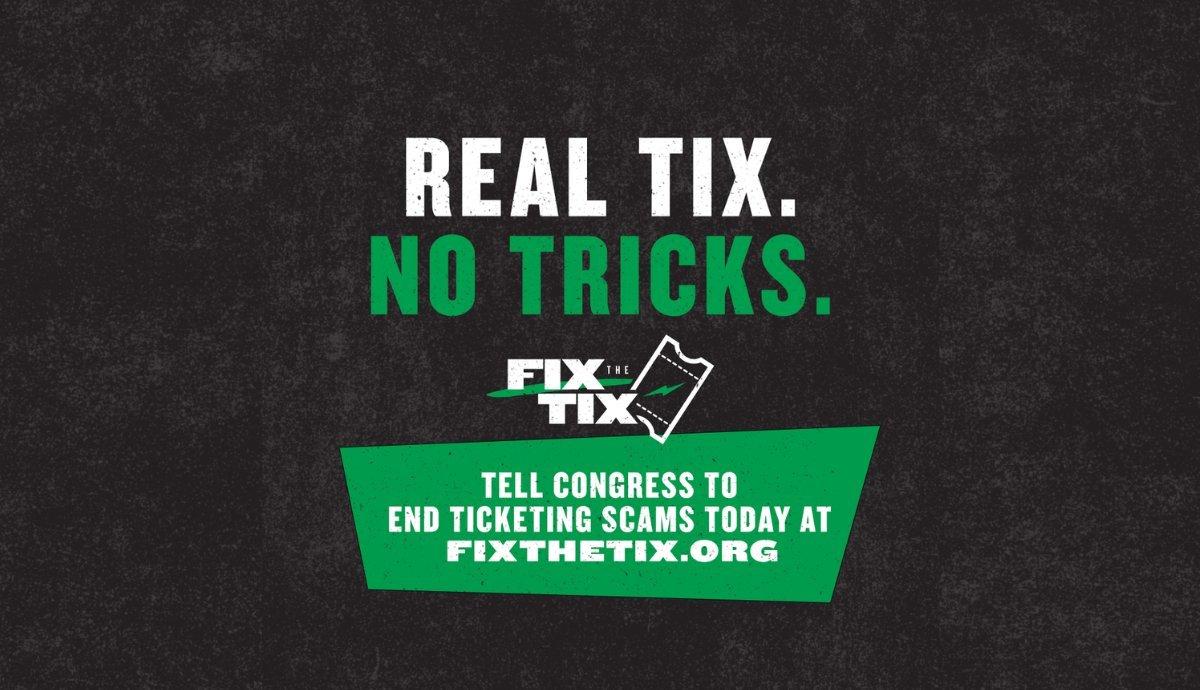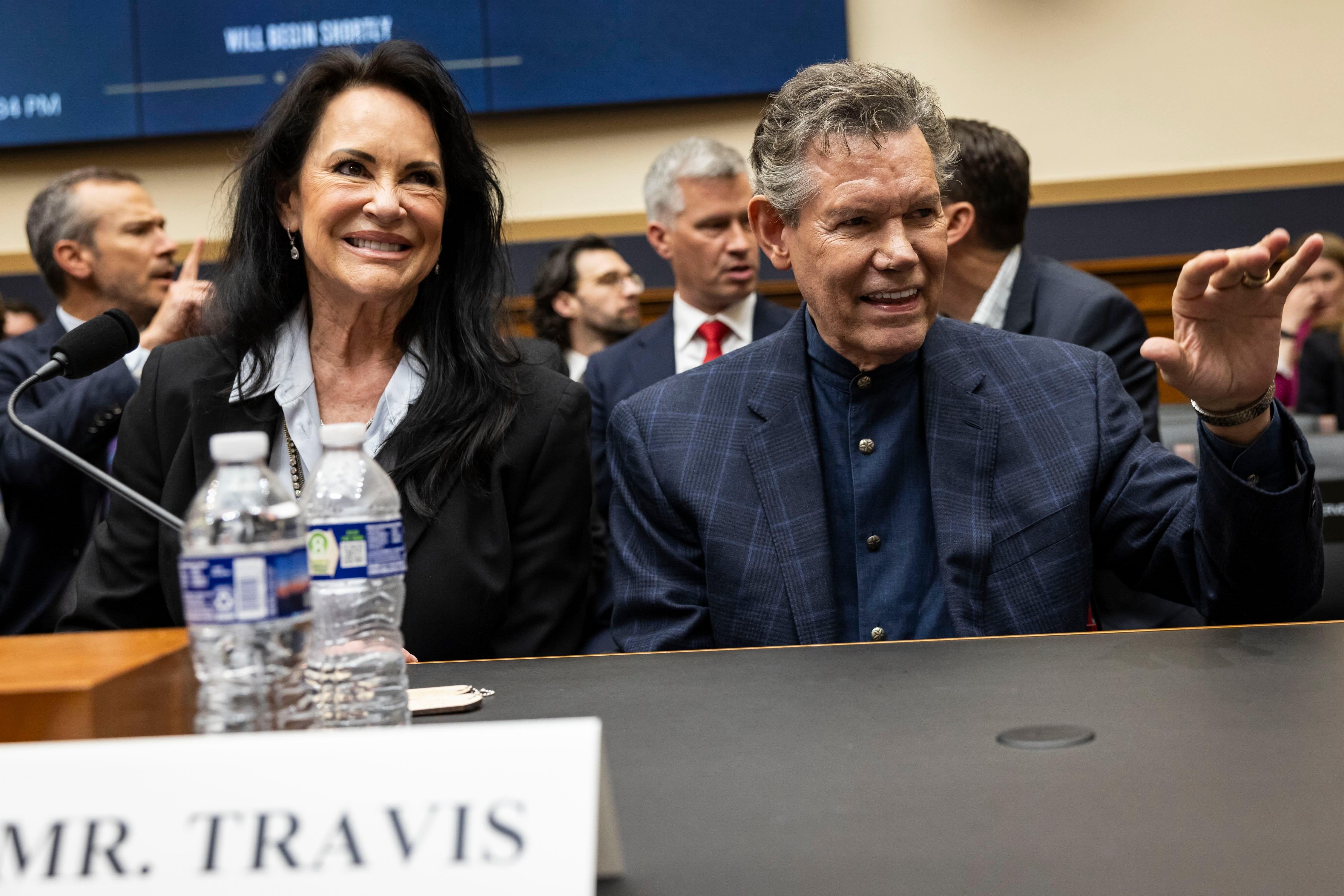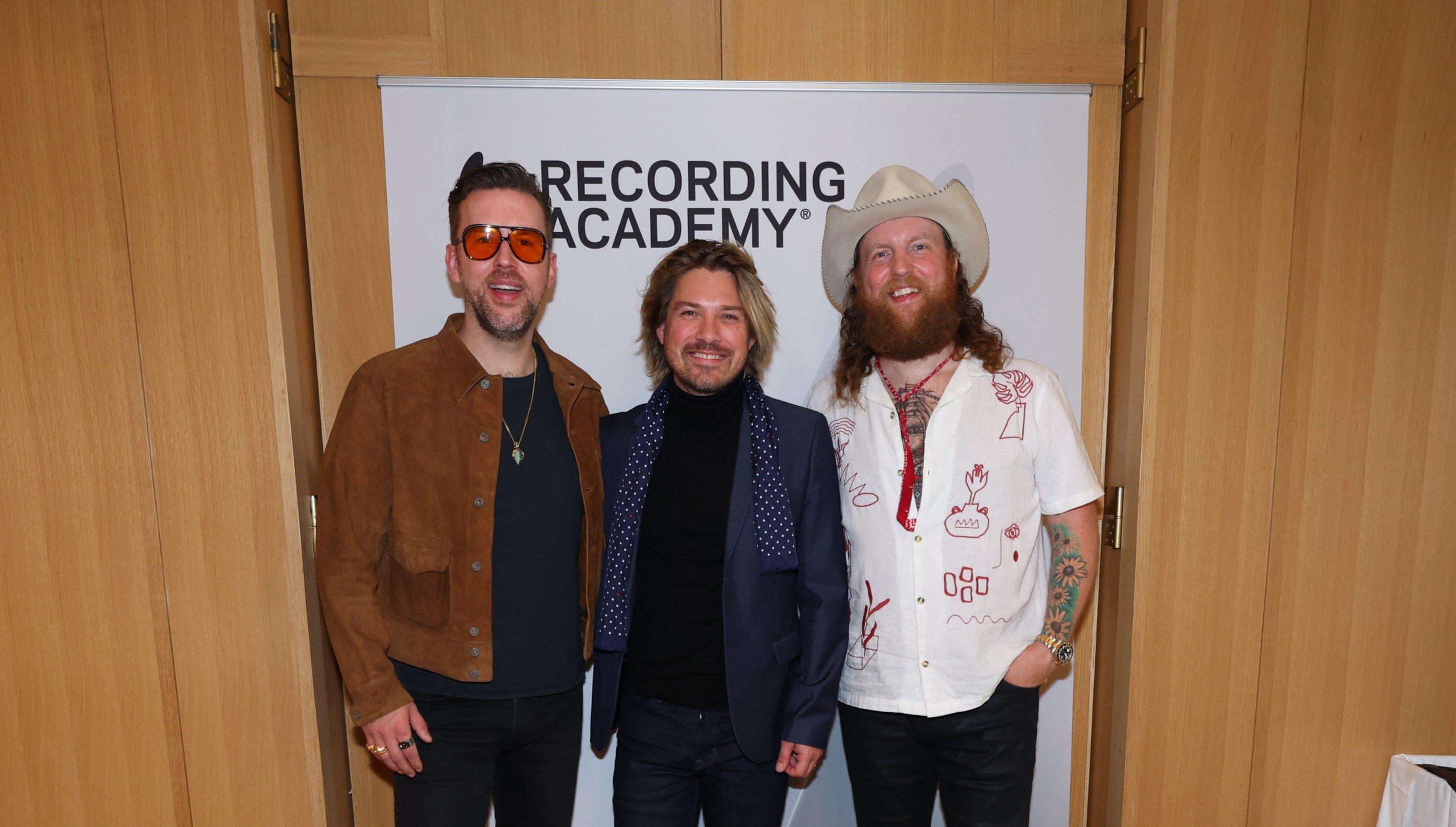Photo: Koury Angelo

Sam Barsh
news
How It Really Works: Songwriter Sam Barsh On Success In The Streaming Age
The multi-platinum music creator discusses the reality of making a living as a songwriting in the streaming age
What does it take to make a living as a songwriter in today's music industry? The answer may surprise you. Multi-platinum songwriter, producer and keyboardist Sam Barsh would know. His smash-hit credits include co-writer on Aloe Blacc's "The Man," writer and keyboardist on Kendrick Lamar's To Pimp A Butterfly, contributions to albums by Anderson .Paak, BJ The Chicago Kid, Ledisi and many more.
We sat down with Barsh to hear his perspective from the front lines of music creating as a living, and his insights are powerful. Below, Barsh shines a light on the reality of making a living as a songwriter in the streaming age and provides valuable advice to aspiring songwriters and a glimpse at why all music creators can find optimism in the recently passed Music Modernization Act.
<iframe width="620" height="349" src="https://www.youtube.com/embed/AAuCMf14FzU" frameborder="0" allow="accelerometer; autoplay; encrypted-media; gyroscope; picture-in-picture" allowfullscreen></iframe>
As a major songwriter how has the streaming age affected your bottom line?
The biggest change that streaming has brought to the songwriting business is the replacement of physical or download sales with streaming, and the corresponding difference in revenue. Physical sales continue to disappear while streaming is the way of the present and the future.
The mechanical royalty payment for a physical or download sale of a song is $0.091 per sale, while the average streaming mechanical royalty payment is $0.00043 per stream. (The $0.00043 per stream figure is the average per stream payment from Spotify, which is the most used streaming platform in the US. Apple and Tidal pay more, Google pays less, so the Spotify number is a good median). And since songwriters have their rates set by the U.S Government, we can’t really go out and sell our songs to those services for what they should be worth.
The good news is the Music Modernization Act is set to change that [with the institution of a market-based "willing buyer, willing seller" standard], and that’s exciting and encouraging, but at the end of the day the new royalty rates will still be set by the government and as we’ve seen recently subject to appeals and court fights. So even though I have a catalog of over 100 songs, a large number of which are with major artists, including four songs featured on No. 1 albums on the Billboard 200 and multiple Gold and Platinum plaques, that doesn't translate into riches.
Could you go into more detail on the royalties you earn?
To paint a very clear picture of how most songwriters earn money from streaming, let's examine the “album cut,” or a song that wasn't a single, on a major platinum album.
Fifth Harmony's [second album] 7/27 is a perfect example to use, since it's an album by a huge act that has a lot of different songwriters on it… It's a quintessential professional pop songwriter album, if you will.
Like almost every platinum album, 7/27 was led by its singles. On Spotify, “Work from Home” has almost 900 million streams, “All in My Head (Flex)” has close to 300 million, and “That's My Girl” has 130 million plus.
By contrast, seven of the songs on the album have less than 22 million streams each on Spotify. Taking into account that Spotify has a little less than 40 percent market share for streaming, let’s just approximate that each of those seven album cuts streamed 50 million times total across all platforms.
With the average streaming rate mentioned before of $0.00043 per stream, that means a song with 50 million streams earns $21,500. With an average of 5 writers per song on 7/27, assuming in this case that they all got even splits, each writer on one of these cuts would earn around $4,300 from streaming.
Considering that album cuts are much less likely to get major sync licenses or radio play, in many cases that $4,300 is practically all the songwriter will make from landing a song with an A-list pop act. Of course, artists like Fifth Harmony still sell some physical copies, but that is a small number in the scheme of overall sales. And keep in mind that there are songs on major platinum albums with WAY less than 50 million streams. Also, most writers have either an admin deal or a publishing deal, which will take anywhere from 10 to 50 percent of their earnings.
Contrast this with if Fifth Harmony had released this album in 2003 with the same numbers. For the entire CD era, if people wanted to buy an artist's single, they would purchase the album that the song was on. Given that “Work From Home” went 5x Platinum in the USA alone, for this purpose we'll assume people would have purchased 5 million copies of the album. With a statutory mechanical rate at that time of around 9 cents per song, each song on the album would have generated $450,000 from U.S. sales, with the individual songwriter's 20 percent of one song earning them $90,000 in US mechanicals alone, as opposed to today's number of $4,300 from the entire world.
This analysis is not an exact science, but it paints the picture of how things have changed.
In light of the difficulties of earning a living in the streaming age, what would you say to an aspiring hit songwriter?
First of all, I would say don’t quit writing songs if that's what you love to do. It’s part of our DNA as writers to create songs, and it is a hell of a lot more fun than most other things people do for a living. However, if you’re in it just to chase hits and make money, you need to know what the stakes are.
Be forewarned that if your primary goal in becoming a songwriter is to get rich, your odds are infinitesimal. You’re not only competing with millions of writers for one of the top 30-50 songs (the songs that generally make real money), you also have to account for the fact that most hits today have between three and six writers on them, so the pie is divided accordingly.
Also, the concept of an “evergreen” copyright has changed, since streaming has put a major dent into catalog sales for older songs.
"I was told recently by a legacy artist who had big hits in the 70s that their catalog royalties went down about 70 percent since streaming took over." -Sam Barsh
Given that most hit songs generate the majority of their revenue during a two to three-year peak period, you would have to write multiple hit singles and/or have a substantial percentage of a global super-smash to make the “set for life” money that many people think comes from writing just one hit song. It's definitely not impossible, but you can have a lot of success as a songwriter and still just be living royalty check to royalty check.
On the positive side, streaming is a great tool for artists. So if you're a writer/artist, self-releasing music is a way to both gain exposure and make money. It's much easier to get somebody to check out your music via streaming than it was when you just had to hope someone who never heard of you would randomly decide to buy your CD at the record store. And payments for the master side of recordings are about 10 times higher than mechanical streaming royalties for songwriters.
Lastly, for my musician friends that are dabbling in songwriting and production, know that you’re competing with people who do nothing but write songs and produce, and have been honing their craft with as much dedication as we have with our instruments. I myself have put in my 10,000 hours at least threefold, as a musician, a songwriter and as a producer and engineer. And it still took me 10 years of seriously working at songwriting to write major records.
<iframe width="620" height="349" src="https://www.youtube.com/embed/HroxIimJYHU" frameborder="0" allow="accelerometer; autoplay; encrypted-media; gyroscope; picture-in-picture" allowfullscreen></iframe>
What’s one tip you’d give that a young songwriter might not be aware of?
Be mindful of splits ahead of time. I recommend having a conversation with your co-writers directly, before getting management involved, whenever possible. That doesn’t always prevent somebody from tripping or going back on their word, but if you can communicate directly with your collaborators and agree on splits before the song gets placed or recorded, it will alleviate headaches later on.
You mentioned your role as a producer earlier. Can you talk a bit about what it’s like to be a producer?
One of my favorite things about being a producer is that it requires me to utilize the entire range of my musical, emotional and intellectual skill sets. I'm a people person, and every situation is different, so I always get an intrinsic feel for the energies in the room and do my best to facilitate a day of great work. Making the artists, writers, musicians, engineers and anyone else who happens to be in the room feel comfortable and stay focused is essential, because most of the time they're looking to the producer to set, or at least guide, the tone of the session.
All that being said, nowadays producers spend a lot of time working alone. In modern pop, hip-hop and R&B music, producers are responsible for creating the instrumental tracks, hiring outside musicians if necessary, recording and editing the vocals (sometimes with help of engineers and vocal producers), editing audio, adding effects, making requested changes from artists and labels, and delivering a quality rough mix and individual audio files (aka stems). In my experience, the average pop track takes a producer 30-50 hours to complete, often more.
I produce jazz records as well, which tend to take less time because in most cases the artist has selected the material and gotten the arrangements done in advance of the session, and the recordings are usually done by a live band all at once in the span of 2-3 days. Jazz producing is largely about time management and setting a good vibe in the tracking sessions, helping the artist pick takes and solos, and shaping the sound of the instruments in conjunction with the tracking and mix engineers.
For all of this work, producers receive an upfront fee upon delivery of the final product and a backend royalty [The Music Modernization Act guarantees direct payment of this royalty if you register with SoundExchange]. Despite the fact that a lot of people may not understand all it is that we do, as you can see from the amount of skill and time it requires to create and take a record across the finish line, the work of a producer has big-time value and should be treated as such.
Lastly, what can songwriters do to ensure their rights are protected and demand better compensation?
There’s no union for songwriters, but there are organizations like the Recording Academy or Songwriters of North America that we can join that fight for our rights and compensation. These groups were instrumental in getting the Music Modernization Act passed.
However, even with these groups fighting for our rights, according to US law anybody can record any song without permission, and any terrestrial or streaming radio station can play any recording without permission, as long as they pay the statutory rate of compensation to the rights holders. Without the ability to withhold the product, and with compensation rates set by government, we don’t have much leverage in that fight.
The exceptions to this are for the first recording of a song, and for sync licensing in film, television and commercials.
If you write a song that you believe is a smash meant for a major artist, but a label wants to have an unknown artist record it, or an indie artist wants to record it, you have the right to say no, as long as the song has never been officially released on another recording. However, once the song has been recorded and released, anyone has the right to record it again.
And if someone wants to license your song for a show, film or commercial, you have the right to negotiate the fee or to say no.
The underlying theme of all of this is that knowledge is power. The more we all stay aware of the realities of our business and communicate with each other, the better off we all will be. Earning money as a songwriter or music producer is the definition of art intersecting commerce, but a lot of us ignore the commerce part of it. Nobody would accept a job in another field without knowing how much it paid first, and a contractor wouldn't build a custom home for a client without first negotiating a price. If we can approach our work the same way, it could go a long way to convincing our clients and consumers to acknowledge the value of our work.
The opinions expressed are those of the writer and do not necessarily reflect official positions of the Recording Academy.
GRAMMYs On The Hill 2019: Music & Politics Unite At Washington's Largest Advocacy Event For Music

Photo: NoSystem images via Getty Images
news
U.S. Copyright Office Protects Songwriters' Termination Rights
"The Academy applauds the Copyright Office for protecting the rights of songwriters and affirming their ability to receive appropriate compensation after reclaiming their copyrights," says Recording Academy CEO Harvey Mason jr.
In a landmark victory for songwriters, the U.S. Copyright Office issued a new rule on July 10 that ensures songwriters who reclaim their works from their publishers will also receive streaming royalties for those works through The Mechanical Licensing Collective (MLC).
Recording Academy CEO Harvey Mason Jr. spoke on the ruling: "After years of engagement and activism on this issue, the Academy applauds the Copyright Office for protecting the rights of songwriters and affirming their ability to receive appropriate compensation after reclaiming their copyrights. We also thank our friends in the music community for their partnership and collaboration as we fought for this important victory."
Songwriters often sign over the copyright to their music to publishers who then promote, license, and monetize their work. By law, songwriters have "termination rights" which allow them to end their publisher agreement and regain their copyrights after a period of time under certain conditions.
However, the MLC — which administers a blanket license for streaming platforms to use songs — initially determined that royalties generated from streams would continue to go to the license holder at the time a song is uploaded to a streaming service rather than to the current copyright owner at the time a song is streamed.
Starting back in 2020, the Recording Academy, along with other songwriter groups, opposed this practice as it undermined the purpose of termination rights, which exist to level the playing field for songwriters and other creators who may have entered into unfavorable deals.
Since 2020, the Recording Academy held multiple ex parte meetings with the Copyright Office to discuss the impacts of the MLC's determination, and submitted formal comments and reply comments throughout the Office's rulemaking proceedings.
In stating its position, the Academy argued its belief that termination rights are among the most important protections that songwriters, artists, and other creators have for their work. The Academy also urged the USCO to avoid weakening or infringing on these protections.
The U.S. Copyright Office has since agreed with the Recording Academy and deemed the MLC's decision an "erroneous" rule, stating that if a songwriter reclaims the copyright to their music, they should receive the royalties. And after multiple years of rulemaking, the Copyright Office published a final rule last week directing the MLC to distribute royalty payments in accordance with the Copyright Act.
The rule:
Directs the MLC to make future royalty payments to the copyright holder at the time a stream is played.
Directs the MLC to engage in a "corrective adjustment" process to address any overpayments made due to the erroneous rule.
The Recording Academy is proud to champion ownership rights for songwriters and to amplify the voices of small creators. For more information about the new rule, visit here.

Image courtesy of the Recording Academy
news
The Recording Academy Participates In The Fix The Tix Day Of Action
This push rallied artists, industry organizations, professionals, and fans to urge lawmakers to pass the Senate's Fans First Act. The effort follows the passage of the TICKET Act in the House, which set the stage for meaningful reforms.
On July 9, the Recording Academy, in coordination with the National Independent Venues Association (NIVA), participated in the Fix the Tix Day of Action, which aims to ban fake tickets, deceptive marketing, and hidden costs. This joint push mobilized industry organizations, professionals and fans alike to urge lawmakers to pass the Fans First Act.
Backed by the Recording Academy and introduced by GRAMMYs On The Hill honorees Sen. Amy Klobuchar (D-MN) and Sen. John Cornyn (R-TX), the Fans First Act is the most comprehensive reform undertaken to improve the concert ticket marketplace for consumers.
About the Fans First Act, Recording Academy CEO Harvey Mason jr. said: "With the introduction of the Fans First Act today, the Recording Academy applauds Senators Klobuchar, Cornyn, Blackburn, Luján, Wicker and Welch for taking this important step towards comprehensive ticketing reform.
"As we work together to improve the ticket marketplace," he added, "we urge Congress to act on this bill quickly and continue its effort to protect both artists and fans by increasing transparency and limiting bad actors that take away from the joyous experience of live music."
The Fans First Act requires ticket sellers to disclose and itemize fees upfront, prohibits the use of bots to purchase tickets online and requires sellers to refund consumers the full ticket price if the event is canceled. It also penalizes deceptive marketing tactics — like fake websites — that trick consumers into paying more for tickets that may never get them into a show.
Finally, it prohibits the use of speculative tickets. Also known as "specs," these are tickets that a seller claims they possess but do not actually possess. A new case study across five independent venues in the Washington, D.C. area shows that in 2024, 73,000 speculative tickets have been listed for resale at these venues, totaling an estimated $49 million in potentially fraudulent sales.
The Recording Academy is advocating for Congress to listen to the artists on the stage and pass the Fans First Act to protect consumers, elevate creative economic development, and restore trust in the ticketing experience for fans and artists.
Click here to take action — and keep watching our Advocacy page for updates on how the Recording Academy fights for all music people!

Photo: Samuel Corum/Getty Images
news
Watch: House Judiciary Subcommittee Holds "Radio, Music And Copyrights: 100 Years Of Inequity For Recording Artists" Hearing
The hearing examined why artists and producers don't receive royalty payments for the public performance of their songs by broadcast radio stations and efforts to modernize copyright law.
On Wednesday, June 26, the House Judiciary Subcommittee on Courts, Intellectual Property, and the Internet held a hearing titled "Radio, Music, and Copyrights: 100 Years of Inequity for Recording Artists." The aim of this hearing was to examine an injustice affecting the music community: creators not receiving royalty payments for public broadcasting of their sound recordings on terrestrial radio.
The hearing explored the legislative proposal, the American Music Fairness Act of 2023, which would require a license for broadcasting sound recording via AM/FM radio, and ensure that music creators receive compensation for their work no matter the platform. You can watch the deliberations below:
The hearing witnesses included country legend Randy Travis, who boasts seven GRAMMYs and 16 nominations; Curtis LeGeyt, the President and Chief Executive Officer of the National Association of Broadcasters; Michael Huppe, the President and Chief Executive Officer of SoundExchange; and Eddie Harrell Jr., the Regional Vice President and General Manager of Radio One, Inc., in Cleveland.
As Travis had a stroke 10 years ago that limits his ability to speak, his wife, Mary Travis, testified on his behalf. Her testimony wrapped with, "We ask your help in righting the wrong… ensure that artists are paid for their work, their identity is theirs alone, and the soundtracks of our lives continue to play on… Forever and Ever, Amen!" evoking one of her husband's most iconic tracks.
The Recording Academy is a long-term proponent of the American Music Fairness Act. Sponsored by Rep. Darrell Issa (R-CA) and Rep. Jerry Nadler (D-NY), the AMFA is a balanced solution that ensures music creators are fairly compensated when their songs are played on AM/FM radio, but with carefully crafted exemptions to protect small and local broadcasters.
During the hearing, several members of the subcommittee expressed strong support for the American Music Fairness Act, and many encouraged the radio industry to work with artists and record labels on reaching a solution to end the century-long injustice.
The bill recognizes the property rights of creators, while supporting community broadcasters across the United States. For close to a century, performers, musicians, and studio professionals have been denied the basic right to receive compensation for their work when their music is played by AM/FM radio.
From the foundational performers of the past to today's iconic stars and the thousands of indispensable backing vocalists, instrumentalists, producers, engineers, and mixers, precisely zero dollars have gone to the creators behind the music played on the radio.
To make matters worse, the United States is one of the only countries in the world– a distinction it shares with countries like Cuba, North Korea,and Iran– where this inequity exists, costing artists hundreds of millions of dollars in lost reciprocal royalties overseas in addition to the royalties that aren't paid at home.
The Recording Academy has been championing this issue for almost two decades — and they're far from alone. In December of 2022, during the 117th Congress, identical legislation passed out of the House Judiciary without any recorded opposition — just another reason why the Recording Academy has faith that the AMFA has legs.
Click here for ways to support the American Music Fairness Act and get involved in the advocacy for music creators, and stay tuned for more information about the Academy's continued fight for all music people.

Photo courtesy of the Recording Academy
list
How Newly Elected Recording Academy Trustees Are Involved In Advocacy: Dani Deahl, Taylor Hanson & More
Newly elected Recording Academy Trustees Dani Deahl, Taylor Hanson, Torae Carr, and Sara Gazerak have a history of advocacy for music people. Get to know them below.
The Recording Academy's Board of Trustees has a history of being filled with members that are both passionate about making music and advocating for music creators. The newly elected slate of trustees is no exception and four of the new members continuously show their dedication to advocacy.
Those Trustees are Dani Deahl, Taylor Hanson, Torae Carr, and Sara Gazerak. They're four of a total of 19 leaders of diverse backgrounds and disciplines who have assumed their position on the 2024-2025 Board of Trustees.
Effective June 1, the newly elected Trustees joined the Academy's midterm Trustees, including National Officers Tammy Hurt (Chair), Dr. Chelsey Green (Vice Chair), Gebre Waddell (Secretary/Treasurer), and Christine Albert (Chair Emeritus).
Their mission is to uphold the Academy's core values: to serve and represent the music community at-large through its commitment to promote diversity, equity and inclusion, fight for creators' rights, protect music people in need, preserve music's history, and invest in its future.
About that fight for creator's rights, specifically: read on for these four Trustees' advocacy bona fides.
Dani Deahl
This prominent artist, DJ and producer previously served as the Recording Academy's Chicago Chapter Governor. She's also been a prolific advocate for music makers and the greater music industry.
In March, Deahl testified in front of the Illinois House and Senate on HB 4875/SB 3325 alongside fellow Chicago Chapter member Jeff Becker. HB 4875/SB 3325 represents a crucial step towards modernizing Illinois's Right of Publicity Act for the AI era.
By granting additional enforcement rights and remedies, the bill was created to shield musicians from exploitation by generative AI systems. While existing copyright laws offer some protection, the amendments directly address gaps in safeguarding an artist's name, image, likeness, and voice.
Shortly after the Academy and Deahl's advocacy efforts in Springfield, HB 4875/SB 3325 passed through both the Illinois House and Senate and is with Governor J.B. Pritzker waiting to be signed into law.
On Friday, May 3, Deahl participated in the Recording Academy's Inaugural GRAMMYs on the Hill Future Forum. Designed to provide a space to explore the most pressing issues facing music, this momentous occasion served as a pivotal platform to delve into the impact of artificial intelligence (AI) on the music community. The afternoon consisted of a series of panel discussions curated to explore both the promise and the peril that AI presents to music makers.
Deahl joined GRAMMY nominated producer, emcee, vocalist, and thought leader, Kokayi, and Recording Academy's Chief Advocacy & Public Policy Officer, Todd Dupler, for the first panel of the afternoon.
Throughout the discussion, Deahl demonstrated live how she ethically uses AI as a tool to enhance her music, including stem separation, voice or tone replacement, and song generation. Dani also attended and participated in the 2024 GRAMMYs on the Hill Awards and Advocacy Day.
Taylor Hanson
You know that surname: he's a former Texas Chapter President, three-time GRAMMY nominated artist and member of the band Hanson.
Last August, Recording Academy members of the Texas Chapter, including Taylor Hanson, headed to Oklahoma City to meet with state government officials to build up the relationship between the Oklahoma music community and state leaders.
Throughout the day, the group met with Lieutenant Governor Matt Pinnell and the Deputy Director of the Oklahoma Film and Music Office, Jeanette Stanton, at the state's Capitol before heading to the Governor's Mansion.
During the meeting, they discussed the importance of the music community in Oklahoma, ways the state can continue to be involved in supporting the music community, and how the Recording Academy can be a resource for ensuring artists' voices are heard.
At the Governor's Mansion, Hanson participated in a panel with other Texas Chapter members on the Recording Academy and how Oklahoma Academy members and music creators can get involved. Specifically, the group highlighted the Recording Academy's District Advocate Day, which Hanson has been a vocal supporter of.
Taylor Hanson has participated in numerous District Advocate meetings, attended the 2024 GRAMMY Advocacy Brunch, and has also used his social platform to spread awareness about the Recording Academy's grassroots advocacy movements.
Torae Carr
On May 7, 2024, this rapper and former New York Chapter President joined other members of the Recording Academy's New York chapter and took to the state capitol in Albany. The purpose was to advocate for the passage of A 127, a crucial piece of legislation designed to safeguard the creative works of artists across New York.
Throughout the day, the group met with key members of the Assembly to express their support for the bill and highlight the crucial need to protect artistic freedom during legal proceedings.
At the time of the advocacy day, A 127 had already passed through the senate. Since then, it has been voted through the Assembly Codes Committee with the goal to be voted on in the Assembly in the coming days.
Sara Gazerack
Gazerack isn't just a GRAMMY-winning jazz vocalist: she serves as one of the Los Angeles Chapter's Advocacy Representatives and most recently was a Los Angeles Chapter Governor.
This spring, Sarah joined some 60 GRAMMY winners, nominees, and Recording Academy executives in DC for GRAMMYs on the Hill. Sara met with Rep. Jerry Nadler (D-NY), Rep. Larry Bucshon (R-IN), and policy staff of Rep. Katherine Clark (D-MA).
The Advocacy Day consisted of meetings with Senators and Representatives on Capitol Hill and a visit to the White House for a roundtable discussion on AI policy, ticket reforms, the National Endowment for the Arts, and the president's work on gun violence, before a special conversation with Press Secretary Karine Jean-Pierre.
The Recording Academy commends these Trustees for their commitment to advocacy for music people — and to follow their future work in this regard, keep checking RecordingAcademy.com/Advocacy for up-to-date info!
Illinois Passes AI Digital Replica Protections Law: What To Know About HB 4875
